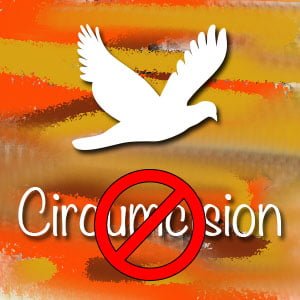The Jerusalem Council – Teaching Plan
Key Thought: We should always strive to keep in step with Christ to fulfill His will. Egos must be put aside for the sake of the Spirit’s saving activity.
1. Have a volunteer read Acts 15:1-5.
- Ask class members to share a thought on what the most important point in this text is.
- What were some of the advantages of being a Jewish Christian? Were there any disadvantages or challenges?
- Personal Application: Can Adventists who grew up in the church tend to be more judgmental and exacting on those who come into the faith? Share your thoughts.
- Case Study: One of your relatives states: “Why didn’t Paul settle the issue at the local church level rather than sending a delegation to Jerusalem?” How would you respond to your relative?
2. Have a volunteer read Acts 15:7-11.
- Ask class members to share a short thought on what the most important point is in
 this passage.
this passage. - What evidence did Peter give in affirming that the Gentiles did not need to be circumcised?
- Personal Application: What issues in our church today may cause debate and dissension that the church leaders should meet, discuss, and render opinions on? Share your thoughts.
- Case Study: One of your friends states, “Other than a health issue, why were the Jewish Christians so focused on circumcision as a requirement for Christianity? Do you believe that a person should be baptized in order to be part of God’s church? How are these two related?” How would you reply to your friend?
3. Have a volunteer read Acts 15:28,29.
- Ask class members to share a short thought on what the main idea of this text is.
- Why did the council list some of the Old Testament Jewish law restrictions as applicable to the Gentiles? Isn’t it an all or nothing situation?
- Personal Application: When disputes arise, how can we learn to sit together, listen to each other, and in respect and humility work through the issues? Share your thoughts
- Case Study: One of your neighbors states, “Why did the council say that we should not eat any meat that had been strangled or didn’t have any blood in it? I thought Kosher meat was for the Jews, just like circumcision.” How would you respond to your neighbor?
4. Have a volunteer read Acts 15:22-29.
- Ask class members to share a short thought on what the main idea of this text is.
- Why does this say we shouldn’t eat meat offered to idols when Paul later states that the idol is nothing? Is this contradictory, progressive truth, or an application situation? Share your thoughts.
- Personal Application: Why is fornication mentioned here, but none of the other commandments? We know that in verse 21 there is a reference to Moses’ writings, but why the focus on fornication for the Gentile believers? Share your thoughts.
- Case Study: Think of one person who needs to hear a message from this week’s lesson. Tell the class what you plan to do this week to share with them.
(Truth that is not lived, that is not imparted, loses its life-giving power, its healing virtue. Its blessings can be retained only as it is shared. Ministry of Healing, p. 148).
